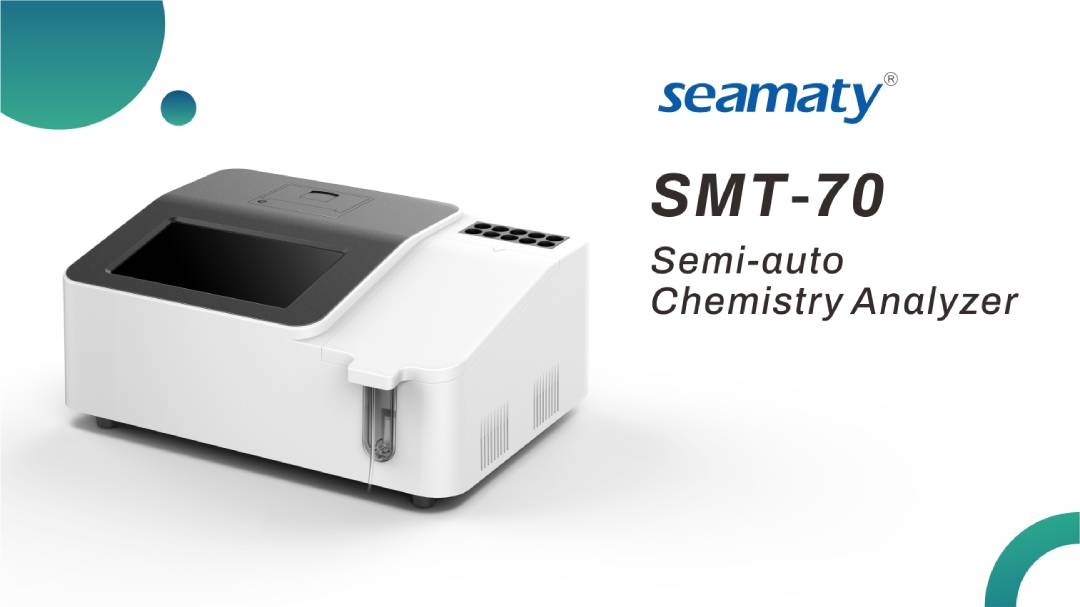release time:2022-07-25 17:01:54
A chemistry analyzer is a machine used to measure the concentration of various chemicals in a sample. The most common type of analyzer uses enzymatic reactions to measure the concentrations of glucose, protein, and cholesterol. By measuring the rates of these reactions, the machine can determine the concentrations of these chemicals in the sample. In addition to measuring the concentration of specific chemicals, chemistry analyzers can also be used to diagnose diseases. For example, by measuring the levels of certain enzymes in a patient's blood, a doctor can determine whether or not they have liver disease. Chemistry analyzers are essential tools in the field of medicine and play a vital role in diagnosing and treating diseases.
2023-07-07
Explore the Seamaty SD1 fully automated dry chemistry analyzer: precise, intelligent, and fast. With high accuracy, quick testing, and easy operation, it's the ideal solution for reliable biochemical diagnostics. Discover its compact design and simplified data management for efficient clinical testing.

2021-11-15
Biochemical tests, like blood tests, are used to check your pet's health. However, it is different from blood tests. Blood tests can only check red blood cells, white blood cells and platelets. The veterinary biochemistry analyzer can test a much wider range. Here are 9 common ranges of veterinary biochemistry analyzers.

2021-10-18
Semi-automatic biochemical analyzer should be installed on a smooth, fixed, dust-free working platform at room temperature of 15-30℃ and relative humidity <85%. The power supply of the instrument should be used separately. And need to be equipped with UPS uninterruptible power supply and ground, ground is particularly important. In order to ensure the best working condition of the instrument, it is best to warm up the instrument for 10 min before testing the specimen.